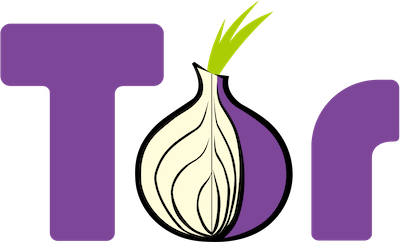Browsing fully anonymously online - Is it truly possible?
by Kimi Yap, Tan Rui Yang, Ethan Koh
13 Jul 2018
With increasing tracking by websites in this years, browsing anonymously online is getting increasingly difficult. Thankfully, there are number of measures which you can adopt in order to keep your online identity hidden, which we will explore below !
But firstly, why is it so important to stay private online?

Have you ever went to a website, and there’s a popup asking you to “accept cookies”? These cookies are there to “improve your experience”, but in essence they are there to track your online behaviour and collect data on you. Some companies even sell your data to other companies for money. Does this sound scary to you? Then read on to find out!

Using DuckDuckGo:
DuckDuckGo is an Internet search engine that emphasizes protecting searchers’ privacy and avoiding the filter bubble of personalized search results. DuckDuckGo distinguishes itself by not profiling its users and deliberately showing all users the same search results for a given search term, and emphasises on returning the best results rather than the most results, generating the results from over 400 individual sources. Some of the differences between DuckDuckGo and a popular search engine such as Google are as such:
| DuckDuckGo | |
|---|---|
| Personalized Browsing | Private Browsing |
| Tracks your search history | Does not track your search history |
| Tracks your IP Address | Does not track your IP Address |
| Creates “filter bubbles” (the way they track you to personalise your searches) even if you are logged out | Has a “no filter bubble” policy |
| Ads are intrusive and you may click on one by accident | All ads are at the top of the search results in one line |

Using Tor
Tor is software for enabling anonymous communication; the difference between this and DuckDuckGo in terms of use is that it allows users to access special, hidden networks on the dark web. These networks end with a .onion, and cannot be accessed with regular search engines (requires Tor browser). Tor users use Tor for many reasons. Some use Tor not to access the dark web, but rather to simply browse anonymity, and to protect their own privacy. Other use Tor for more clandestine operations, such as supposed hitmen-for-hire webs, illicit content, and to sell drugs illegally (and do note it is not limited to these). However, also note that we are not encouraging such activities, and anything you decide to do in Tor is at your own risk, and we will not take any responsibilities for anything you do :)
Now, granted some people take the fact that potential criminals are given the possibility to operate with anonymity as a reason that Tor should not be allowed to continue. Or, return it to as it was originally; a private project not available to the public. See, the thing is, Tor being something that is available to the public is what makes it anonymous in the first place. If Tor were only accessible to a specific group of people (eg. the CIA), any time a connection came from Tor, we could immediately determine it was from that specific group of people. It’s widespread availability is what allows it to be truly anonymous. Government intelligence agents need the anonymity of Tor as much as a illegal drug dealer. And there is no half-measure. It’s either everyone, or no one.
The above measures are not the only way to stay private, but they are methods that you can easily adopt from the get-go, like changing a search engine or a browser. However, if you would like to learn more about how to stay private online, you can go to this link to learn more about browsing anonymously Or, if you would like to know what a IP address is, you can visit here to find out what IP addresses are for!